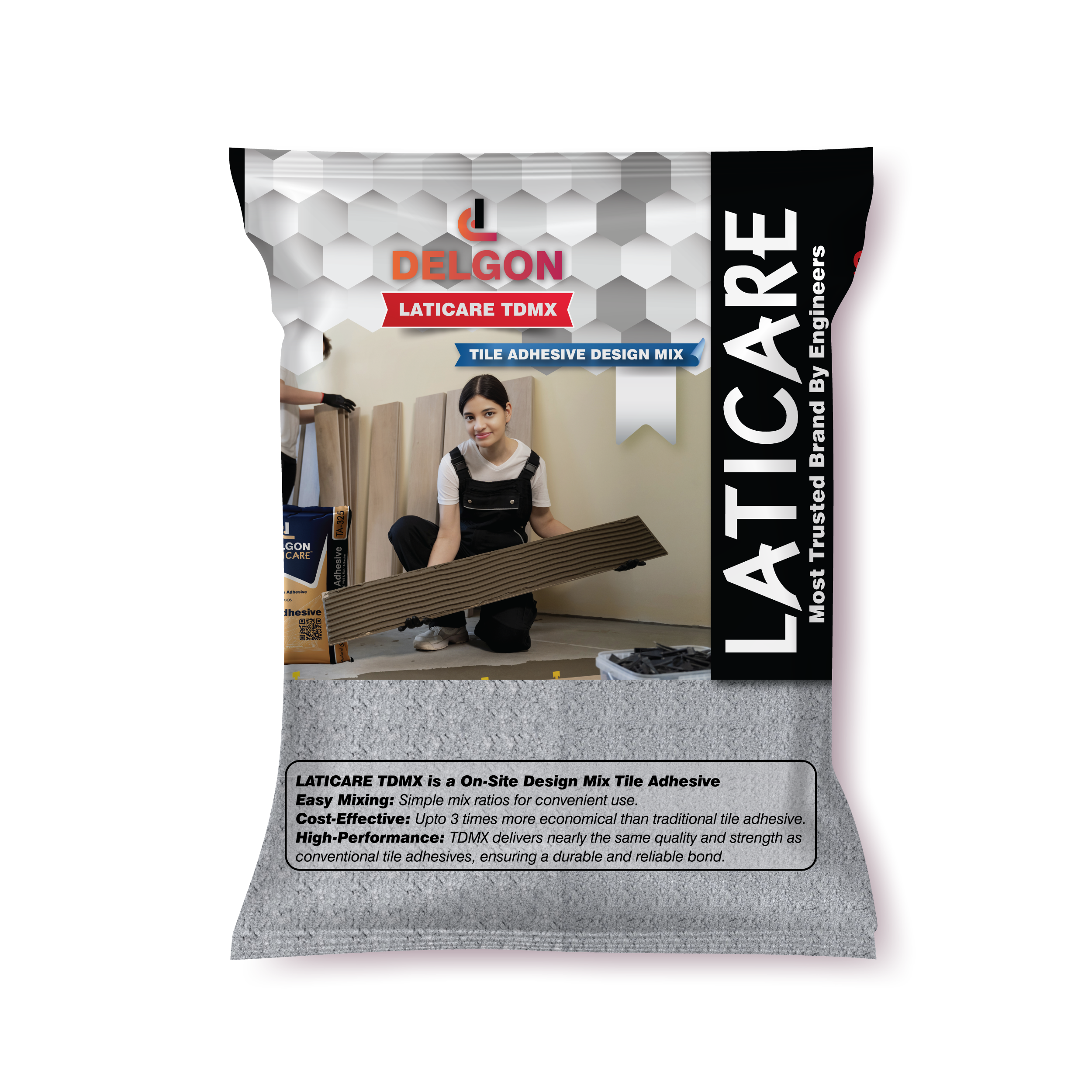Introduction
Tile adhesive might seem like a straightforward product, but its effectiveness relies on intricate scientific principles. Understanding the science behind tile adhesive is essential for achieving a durable and reliable tile installation. In this blog post, we’ll delve into the fascinating world of tile adhesive chemistry and mechanisms. We’ll also shed light on Delgon Laticare, a leading company known for its innovative adhesive solutions.
The Chemistry of Tile Adhesive
Tile adhesives are engineered using a combination of materials to create a compound that can adhere tiles to various surfaces. These materials include:
- Binders: Binders like cement, epoxy, or polymer additives form the base of the adhesive. They contribute to the adhesive’s strength, flexibility, and bonding capabilities.
- Aggregates: Aggregates such as sand or fine particles provide bulk to the adhesive, improving its workability and consistency.
- Modifiers: Modifiers like polymers, latex, or resins enhance the adhesive’s properties, such as flexibility, water resistance, and adhesion to different surfaces.
- Chemical Additives: Additives such as accelerators, retarders, and thickeners control the adhesive’s setting time, workability, and bonding strength.
How Tile Adhesive Works
- Adhesion: Tile adhesive works by creating a strong bond between the tile and the substrate. When the adhesive is applied, its binders penetrate the porous surfaces, creating a mechanical and chemical grip.
- Curing Process: As the adhesive dries, it undergoes a curing process where the water within the adhesive mixture evaporates. This causes the adhesive to harden and develop its bonding strength.
- Flexibility: Tile adhesive also needs to accommodate slight movements that can occur in buildings due to temperature changes or settling. Polymer additives enhance the adhesive’s flexibility, preventing cracks and detachment.
- Water Resistance: In wet areas like bathrooms or kitchens, tile adhesive needs to resist water infiltration. Polymer-modified adhesives create a barrier against moisture, preventing tiles from loosening due to water exposure.
Delgon Laticare’s Innovations
Delgon Laticare is a prominent name in the world of tile adhesives, known for its commitment to innovation and quality. The company’s expertise lies in developing adhesive solutions that align with modern construction needs. Their product range includes specialized adhesives designed for various applications, such as high-temperature environments, heavy-duty installations, and wet areas.
Delgon Laticare’s advancements often revolve around tailoring adhesives to specific challenges, such as:
- Eco-Friendly Formulations: Delgon Laticare is at the forefront of producing eco-friendly adhesives with low volatile organic compounds (VOCs), reducing environmental impact.
- Specialized Solutions: The company offers adhesives formulated to address unique requirements, including adhesive solutions for challenging substrates and extreme conditions.
- Innovation in Polymer Technology: Delgon Laticare’s research in polymer chemistry has led to adhesives with exceptional flexibility and adhesion properties, extending the lifespan of tile installations.
Conclusion
The science behind tile adhesive is a fascinating blend of chemistry, engineering, and innovation. Understanding how tile adhesive works empowers you to make informed choices when selecting adhesives for your projects. Companies like Delgon Laticare play a crucial role in advancing adhesive technology, ensuring that modern construction demands are met with reliable and effective solutions. The next time you embark on a tile installation, remember that the seemingly simple process of adhesive application is backed by a complex scientific foundation.

